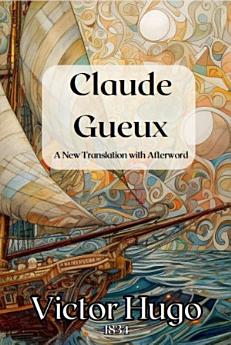Claude Gueux
About this ebook
Published in 1834 in a literary review, Claude Gueux is often cited as one of literature’s first “true crime” stories and an early example of Hugo’s activism in print. The author took inspiration from a real case he had read about in the newspapers: a man named Claude Gueux who had been executed for murder. Hugo’s fictionalized retelling closely follows the facts but adds depth and commentary, transforming a news item into a poignant cry for justice. At the time of its publication, the piece did not cause an immediate sensation – it was a modest publication compared to Hugo’s grand novels – but retrospectively its importance looms large. In this compact story, we see the seeds of Les Misérables: a critique of how society treats its most vulnerable, an argument that ignorance and poverty breed tragedy, and a plea for compassion over vengeance. Modern readers and scholars have noted that Hugo, in Claude Gueux, was essentially sketching the outline of Jean Valjean and Inspector Javert years before he wrote their epic.
In the final pages, Hugo switches from storytelling to a direct address, driving home the moral. He points out that France spent vast sums to punish Claude Gueux, but had spent nothing to educate or aid him. The famous line rings out: “Ouvrez une école, vous fermerez une prison” – open a school and you close a prison. This pivot to essay forms the heart of Claude Gueux’s philosophical and historical relevance. Hugo was writing at a time (the early July Monarchy) when the French prison system and the causes of crime were becoming subjects of public debate. His little story added a powerful anecdote to that debate, essentially arguing that society creates its own criminals through neglect. Though Claude Gueux did not incite immediate reform, it stands today as a succinct statement of Hugo’s humanist creed. It condemns capital punishment (Claude’s execution is described with bitter irony), advocates for the poor, and champions education as the remedy for social ills. Moreover, it showcases Hugo’s innovative blending of genres – factual reportage with dramatic fiction – something that would characterize his later works. In sum, Claude Gueux may be slim in size, but it is weighty in impact: a tragic true story distilled by a master, used to shine a light on the darkness of an unjust society.
This critical reader's edition presents a modern translation of the original manuscript, crafted to help the armchair philosopher engage deeply with Victor Hugo's works through clean, contemporary language and streamlined syntax that clarifies his expansive ideas. Supplementary material enriches the text with autobiographical, historical, and linguistic context, including an afterword by the translator on Hugo’s history, impact, and intellectual legacy, an index of the themes and philosophical concepts he employs—emphasizing Romanticism, social justice, and moral idealism—a comprehensive chronological list of his published writings, and a detailed timeline of his life, highlighting the personal relationships (including his relationship with Charles Dickens) and political commitments that shaped his vision.








